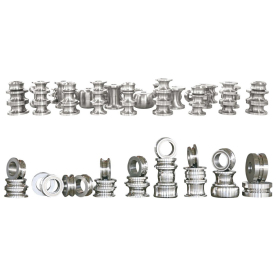Introduction
In the ever-evolving landscape of engineering and manufacturing, the efficiency and effectiveness of various components are crucial. Among these components, the horizontal accumulator has gained significant attention for its unique design and functionality. This article provides an in-depth exploration of the horizontal accumulator, discussing its principles, applications, and relevance in several industries, enhancing our understanding of how this technology contributes to contemporary systems.
What is a Horizontal Accumulator?

Understanding the Horizontal Accumulator: A Comprehensive Look at Its Design, Functionality, and Applications in Modern Technology

Understanding the Horizontal Accumulator: A Comprehensive Look at Its Design, Functionality, and Applications in Modern Technology
A horizontal accumulator is a mechanical device used to store energy in the form of compressed fluid or gas. Designed to operate horizontally, this accumulator effectively manages pressure changes within a hydraulic or pneumatic system. Its primary purpose is to absorb hydraulic surges, provide a reserve of pressurized fluid, and maintain consistent pressure levels throughout the system, thereby enhancing operational reliability.
Design and Functionality
The design of a horizontal accumulator typically includes a cylindrical tank that houses a specified volume of fluid. Inside this tank, there’s a bladder or diaphragm that separates the fluid from a compressible gas, usually nitrogen. When the system pressures fluctuate, the diaphragm allows the gas to expand or contract, accommodating excess pressure or absorbing shocks.
One of the critical advantages behind the horizontal configuration is the stability and space efficiency it offers. Horizontal accumulators can be installed in confined spaces where vertical installations may not be feasible. Additionally, their horizontal design minimizes the risk of fluid stratification and allows for better distribution of forces along the tank’s length, which can enhance the durability of the accumulator.
Key Advantages
1. **Pressure Stabilization:** One of the essential roles of a horizontal accumulator is providing stable pressure within hydraulic or pneumatic systems. By managing pressure fluctuations, it ensures smoother operation of connected machinery, reducing wear and tear.
2. **Energy Storage:** Horizontal accumulators serve as efficient energy storage solutions. They can store excess energy during low-demand periods and release it during peak demand, enhancing the system’s overall efficiency.
3. **Shock Absorption:** In dynamic systems where sudden pressure changes can occur, horizontal accumulators help in absorbing shocks, protecting the system’s components from potential damage.
4. **Space Efficiency:** Given their design, horizontal accumulators require less vertical space, making them ideal for applications with height restrictions.

Understanding the Horizontal Accumulator: A Comprehensive Look at Its Design, Functionality, and Applications in Modern Technology
5. **Versatility:** They can be utilized in various applications, including hydraulic presses, molding machines, and other machinery requiring precise fluid power management.
Applications in Modern Technology
Horizontal accumulators find extensive applications across various industries. Here are some noteworthy examples:
1. **Hydraulics in Manufacturing:** In factories that use hydraulic presses, horizontal accumulators help maintain pressure consistency, ensuring that the machinery operates efficiently without jerking or sudden stops.
2. **Plastic Injection Molding:** In injection molding processes where precise control over material flow is required, horizontal accumulators provide the necessary pressure to ensure even filling and consistent quality in produced parts.
3. **Automotive Systems:** In automotive applications, these accumulators manage fluid pressures in braking and suspension systems, contributing to the safety and performance of vehicles.
4. **Renewable Energy Systems:** In renewable energy sectors, such as wind and solar, horizontal accumulators can store excess energy generated during peak renewable generation periods for use during high demand.
5. **Fire Safety Systems:** In fire suppression systems, horizontal accumulators can store water at pressure, allowing for immediate readiness to deploy in emergencies.
Conclusion
The horizontal accumulator plays a vital role in various mechanical systems, showcasing the importance of effective pressure management and energy storage in modern technology. Its design offers advantages in stability, efficiency, and versatility, making it indispensable across numerous industries. As technologies advance and the demand for efficient, reliable systems grows, the horizontal accumulator will continue to be a focal point in engineering discussions and innovations, enhancing performance and operational safety. Understanding its functionality and applications is essential for anyone looking to engage with contemporary mechanical systems effectively.Durable Spare Parts for Tube Mills



